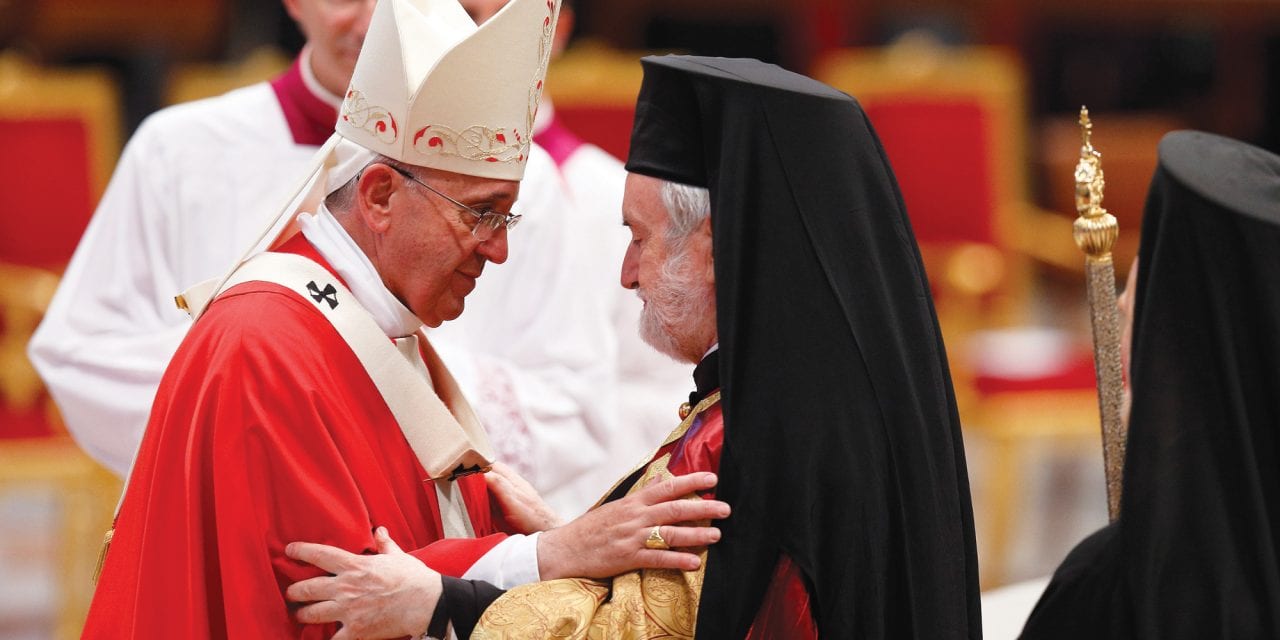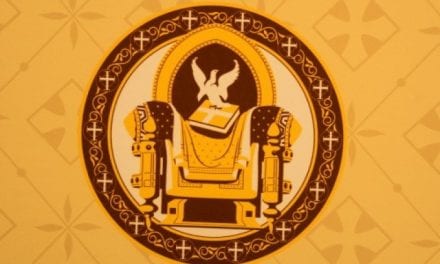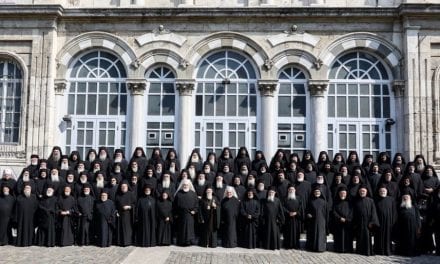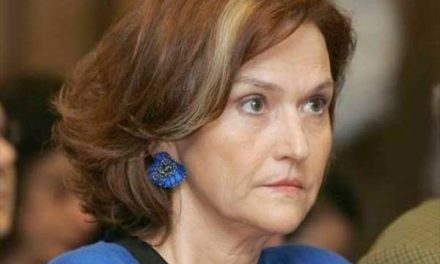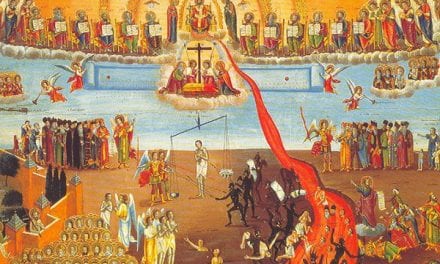The two churches are certainly on the road “journeying toward unity”
Catholic and Orthodox ‘journeying toward unity’
By Father Joseph D. Wallace
Photo: Pope Francis greets Metropolitan John of Pergamon, head of the Orthodox delegation from the Ecumenical Patriarchate of Constantinople, at the conclusion of a Mass marking the feast of Saints Peter and Paul in Saint Peter’s Basilica at the Vatican June 29.
CNS photo/Paul Haring
Back in June, Pope Francis met with a delegation of the Ecumenical Patriarchate of Constantinople who came to Rome to celebrate the feast of Saints Peter and Paul. Pope Francis has a close tie with the Ecumenical Patriarch of Constantinople, Bartholomew I, who he has met with several times since becoming pope in 2013. In fact, he was the first Patriarch of Constantinople to ever attend an installation of a pope of Rome. Francis often invites the patriarch to join him on historical occasions and has visited the Holy Phanar in Constantinople for a Divine Liturgy celebrated by Bartholomew.
While the two leaders share a great rapport, the two great churches of the East and West are still separated after almost a millennium.
Pope Francis is building upon the foundation of rapprochement laid by all the popes going back to Pope Saint John XXIII who called for an Ecumenical Council aimed at modernizing the church and healing the divisions of Christianity. While they were together on a joint pilgrimage to the Holy Land, they discussed the possibility of an “ecumenical synod” in 2025 to mark the 1,700th anniversary of the Great Council of Nicaea. It was at this Council that the undivided church produced the Nicene Creed. They have also banded together in their efforts to confront such global issues as fostering peace and addressing climate change and abuse of the environment.
Anthony Limberakis, who lives in Philadelphia and serves as national commander of the Order of Saint Andrew, an Orthodox organization that promotes the work of the patriarch in the U.S., believes that the two churches are certainly on the road “journeying toward unity.”
He said, “The fact that these two leaders have come together for reconciliation is an example for others. They have reaffirmed their willingness to continue their dialogue and to try and accomplish full communion between the churches.”
Father John Chryssavgis, an Orthodox priest and theological advisor to Patriarch Bartholomew, remarked on the close ties of the leaders that “underlines the serious and sincere commitment to the unity that the two ‘Sister Churches’ seek, it also recognizes the need, regardless of confessional differences, for a united witness to a broken world, where social injustice abounds, where the ecological crisis has reached alarming heights and where power and religion are abused.”
At the June meeting in Rome, Pope Francis said that the journey toward unity or full communion should respect their ancient and unique traditions. He said we are not seeking some wooden uniformity that in the end would be boring, but rather a diversity that respects each tradition.
“Peter and Paul, as disciples and apostles of Jesus Christ, served the Lord in very different ways,” said the pope to the Orthodox delegation. He added, “Yet in their diversity, both bore witness to the merciful love of God our Father, which each in his own fashion profoundly experienced, even to the sacrifice of his own life.”
He also reminded all present that day that the churches of East and West always commemorate the feast of the two great Apostles together. He said this is the right thing to do, especially together as Orthodox and Catholics, because the feast is also a celebration of “their self-sacrifice for love of the Lord, for it is at the same time a commemoration of unity and diversity.”
He said gathering together to remember these two patrons of the church “increases our desire for the full restoration of communion between Catholics and Orthodox.”
Pope Francis reminded everyone that this is the 50th anniversary of the meetings of Blessed Pope Paul VI and Patriarch Athenagoras at the Phanar and Rome in 1967. He said, “The example of these courageous and farsighted pastors, moved solely by love for Christ and his church, encourages us to press forward in our journey toward full unity.”
He also prayed for the success of the meeting that is taking place this month in Leros, Greece, of the Coordinating Committee of the Joint International Commission for Theological Dialogue between the Catholic Church and the Orthodox Church. He said his hope for this meeting is that it “will take place in a spiritual climate of attentiveness to the Lord’s will and in a clear recognition of the journey already being made together by many Catholics and Orthodox faithful in various parts of the world, and that it will prove most fruitful for the future of ecumenical dialogue.”
Father Joseph D. Wallace is director, Ecumenical and Inter-religious Affairs, Diocese of Camden.

